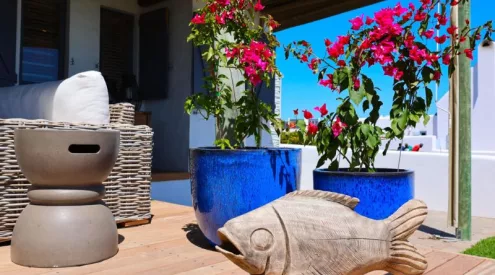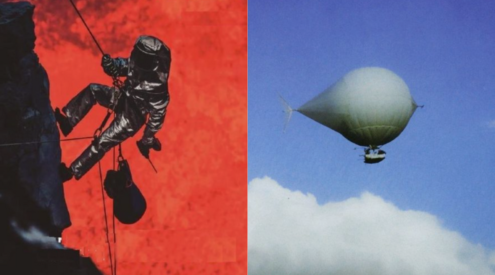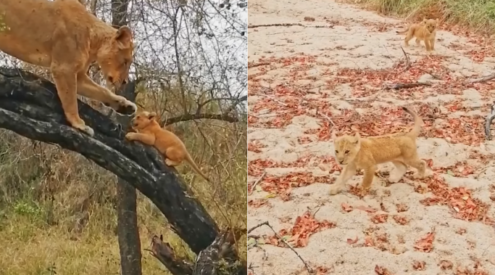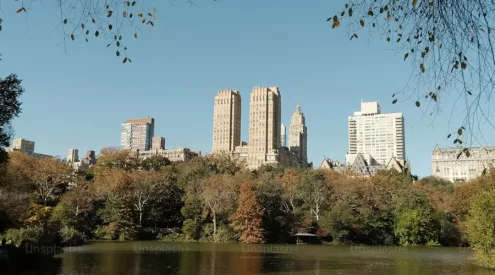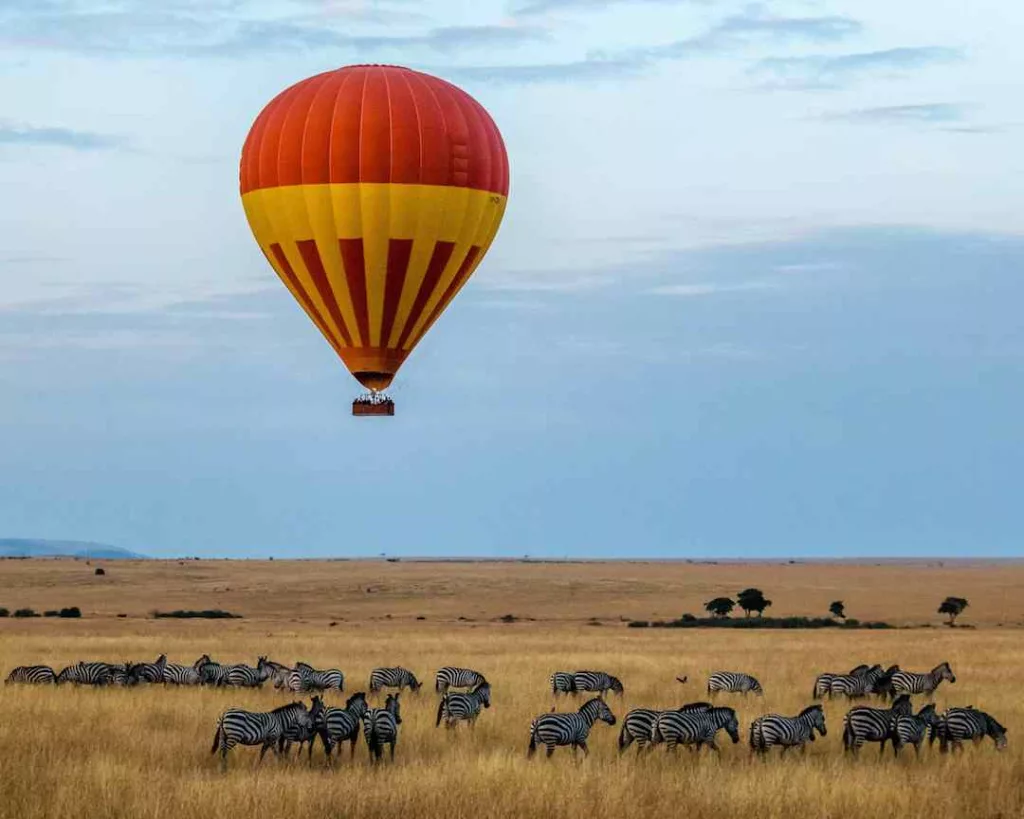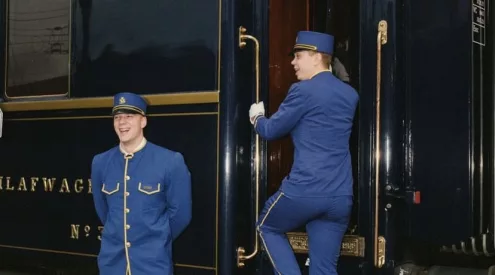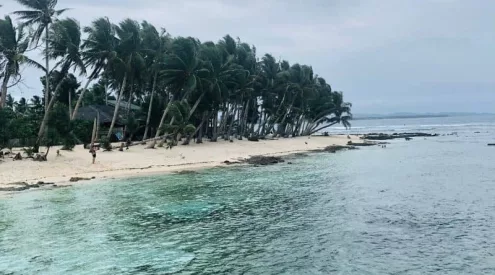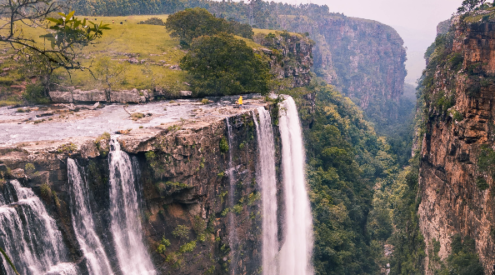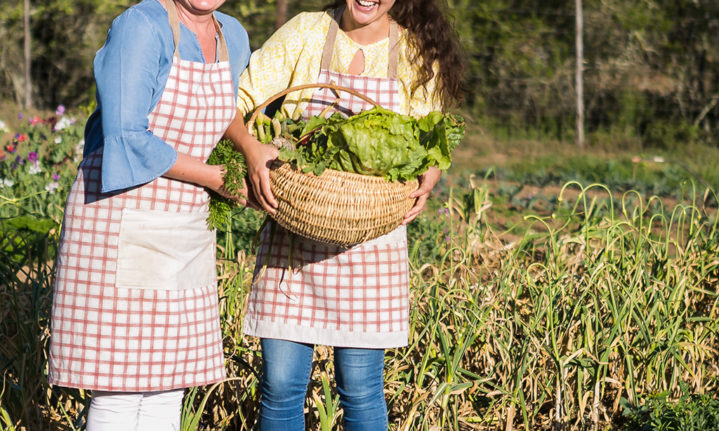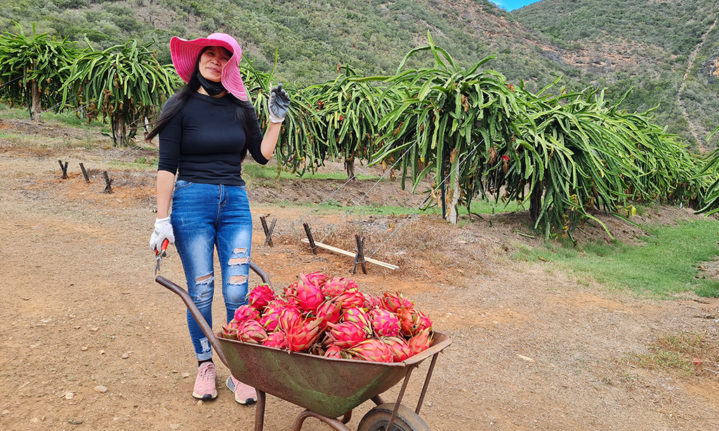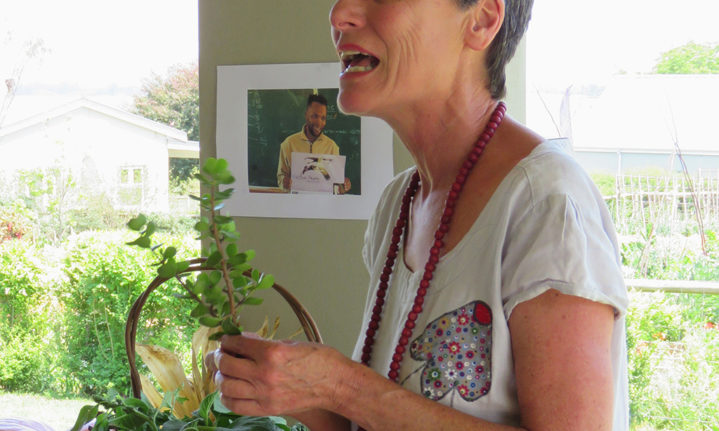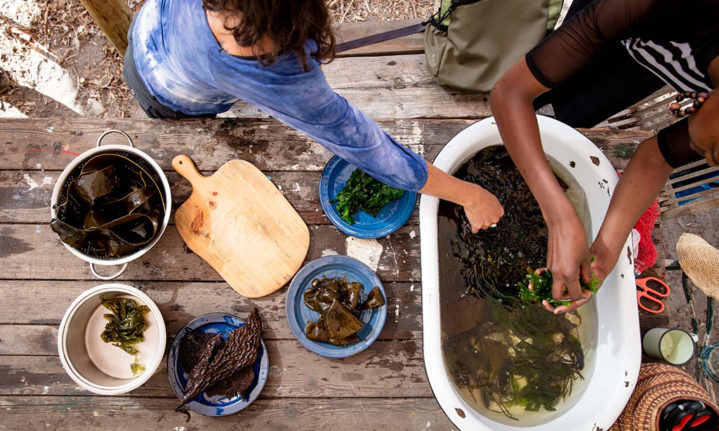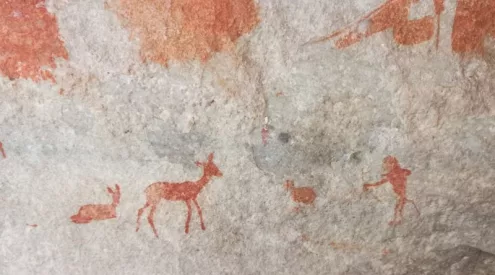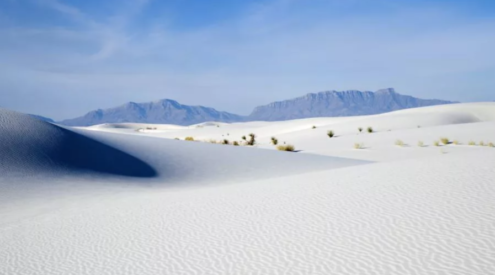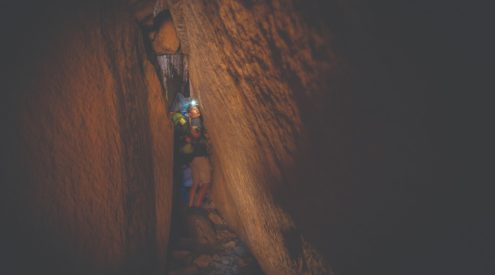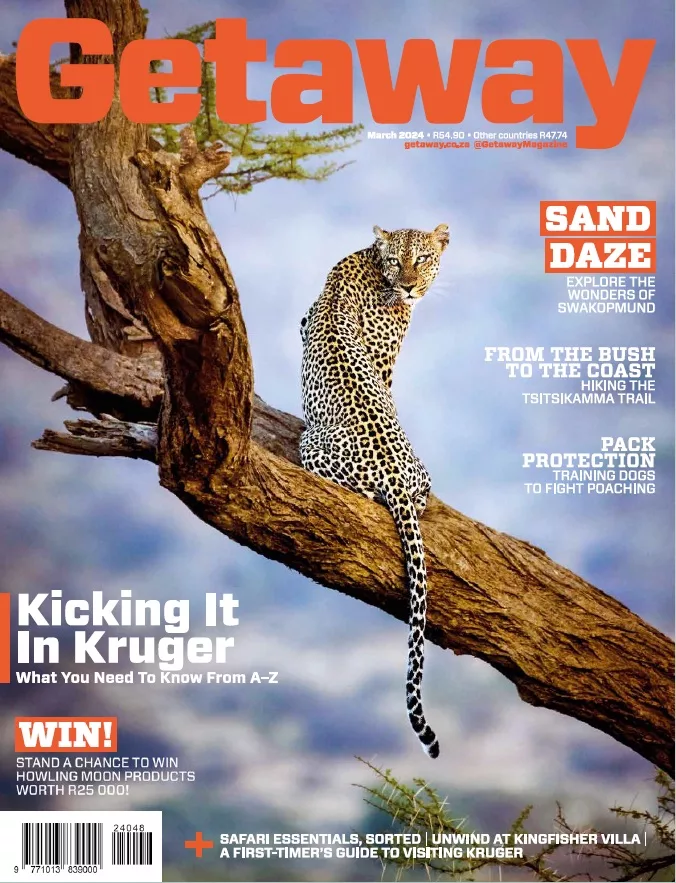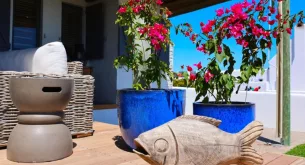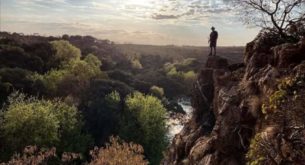Foraging is all the rage right now… but South Africans have been living off the land since prehistoric times. Ingredients like morogo, seeslaai and venison were local delicacies long before fancy restaurants gave them celebrity status. It’s a good thing they did, as more and more farm-to-table and veld-foraging food trends are getting the recognition they deserve. Louzel Lombarsd Steyn shares her pick of the bunch.
Words: Louzel Lombarsd Steyn | Photography: Maree Louw, Amy Coetzer, Louzel Lombard Steyn, Jackye Riddle, Supplied
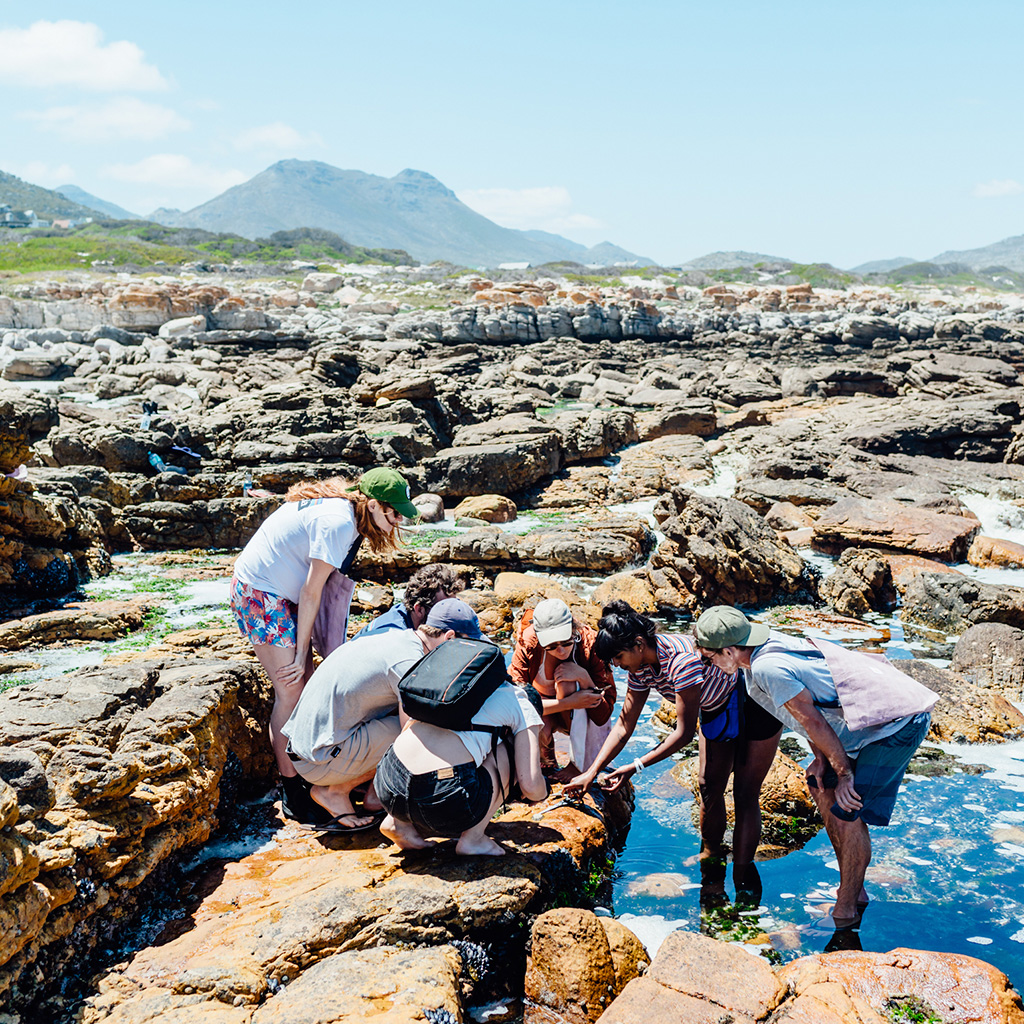
Guests scrambling about and foraging in the coastal rock pools at Cape Point.
Growing up in the Platteland, foraging for food was never a novel thing. As kids, we’d chase bowls of breakfast Maltabella with all kinds of veld finds. Favourites included boomgom’ or tree resin which formed on the bark of old acacias. Not all trees had it and finding these chewy, slightly sweet morsels was like striking a nugget of bark-clad gold. Sprigs of spekboom were abundant and readily consumed while dassies were often on the braai menu. Cringe!
The ultimate, however, was in spring when wild tyut (the colloquial word for wild greens in our region) would sprout up on every possible soil surface and we could enjoy freshly-made morogo as a second breakfast with the older Xhosa ladies on the farm – sitting in a loose circle on the stoep in the sun with our legs stretched out in front of us.
Also Read: The 20 Best Restaurants in Bloemfontein
In our region of the Eastern Cape, morogo goes by many names. Tyut. iMfino. Marog. Whatever you call it, this simple dish of wild greens cooked with maize meal and a bit of rendered fat is not only a major source from which our nation draws its strength… it’s the blueprint of South Africa’s ‘daily bread’. A dish that is affordable, nourishing, locally sourced and communally enjoyed.
Foraging has become quite the buzzword in the global culinary realm and South Africans’ inherent inclination to live off the land has given us a natural advantage. Chef Kobus van der Merwe’s forage fest fine-dining restaurant Wolfgat in Paternoster, epitomised the concept when it was named the best in the world in 2019, but it’s something that has been happening in many small-town restaurants and rural communities forever.
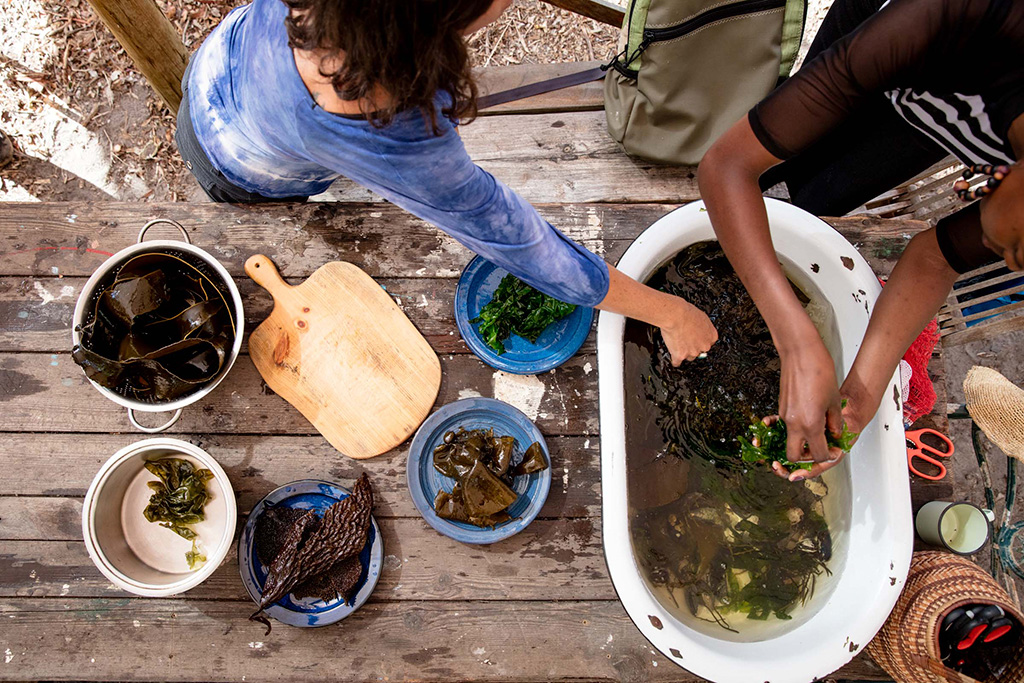
In Cradock in the Eastern Cape, where my mother owns a small bakery and restaurant called True Living, commercial food chains are unreliable. The local supermarket receives a weekly Interlink-load of fruits and vegetables which sit on the shelves to sulk until someone decides to throw them into a soup as a desperate coup de grâce.
Sulk soup won’t do. So, mom has planted a spraw-ling garden from which we harvest enough spinach and fancy salad and asparagus and tomatoes and aubergines and cabbages and corn to supply the shop and feed the farm and trade with neighbours for the goods they grow. Everyone has, at the very least, a few cobs of corn or stalks of spinach growing in the front yard, along with an over-zealous pumpkin crawling out of an old tyre. And after good rains, you’ll see the real ‘smart shoppers’ on the side of the tar roads collecting anything from blooming alfalfa to wild tyut to make a hearty bowl of morogo for dinner.
It’s not the new, romanticised idea of foraging nor is it the feral foraging of our ancestors. It’s something real in-between and a step back to appreciating real food as something that lives and breathes and grows. Here are some of South Africa’s most amazing farm-to-table and foraging experiences to try for yourself.
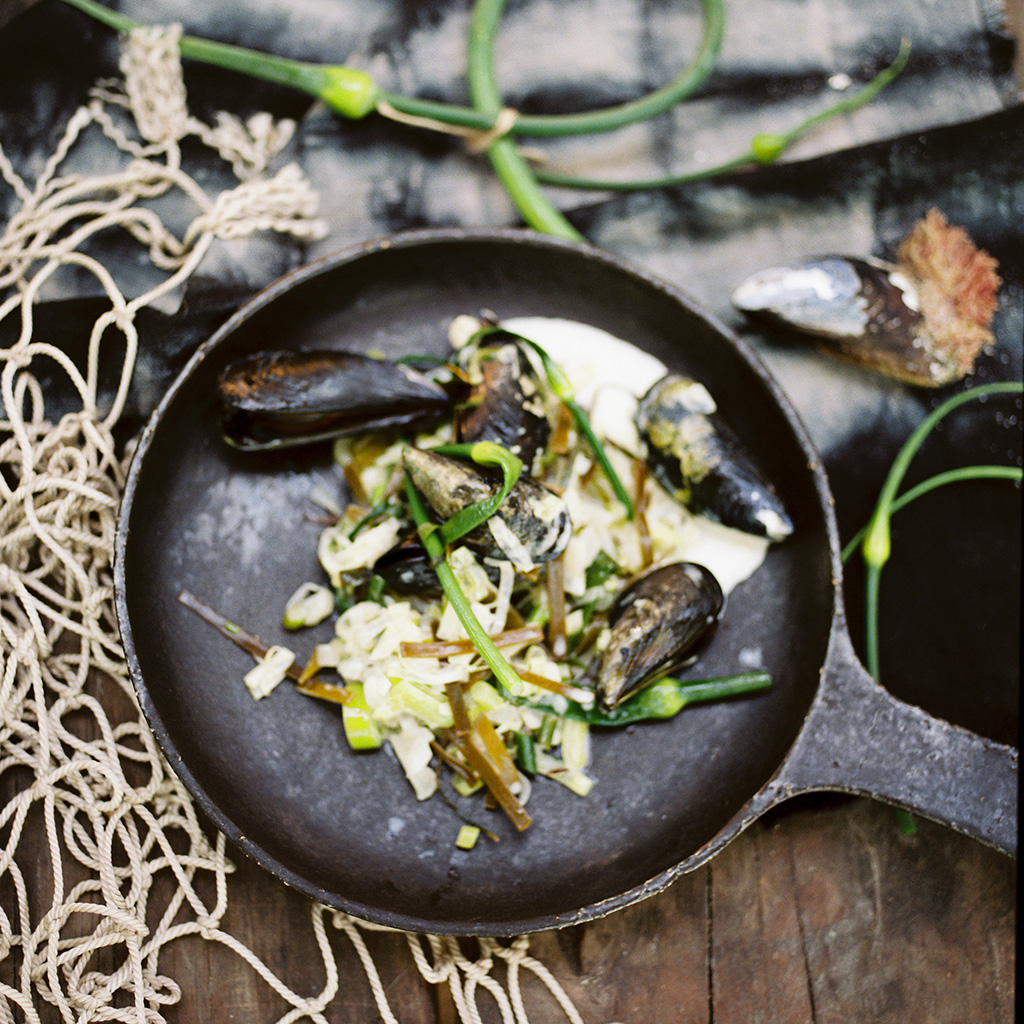
Guests scrambling about and foraging in the coastal rock pools at Cape Point.
Flex Your Mussels
Set on the dramatic Cape Point coastline, the Cape’s Veld and Sea foraging excursions and workshops all run according to the seasons. In summer, the Coastal Foraging outing gives participants a crash-course on local edible seaweeds and how to sustainably harvest while exploring. The magical world of rock pools and their bounty is eye-opening. The half-day excursions end in a feast of foraged finds with tips on how to prepare the macro-algae and shellfish and make various recipes.
In winter, a Wild Food Land Foraging excursion focuses on fynbos and other indigenous edibles of the region. A new, immersive Freedive Foraging Weekend Adventure Course and Autumn Sustainability Workshop are also on the cards. 072 234 4804
Where: Good Hope Gardens Nursery in Cape Point, 7976 Plateau Rd, Cape Peninsula, Cape Town, Western Cape
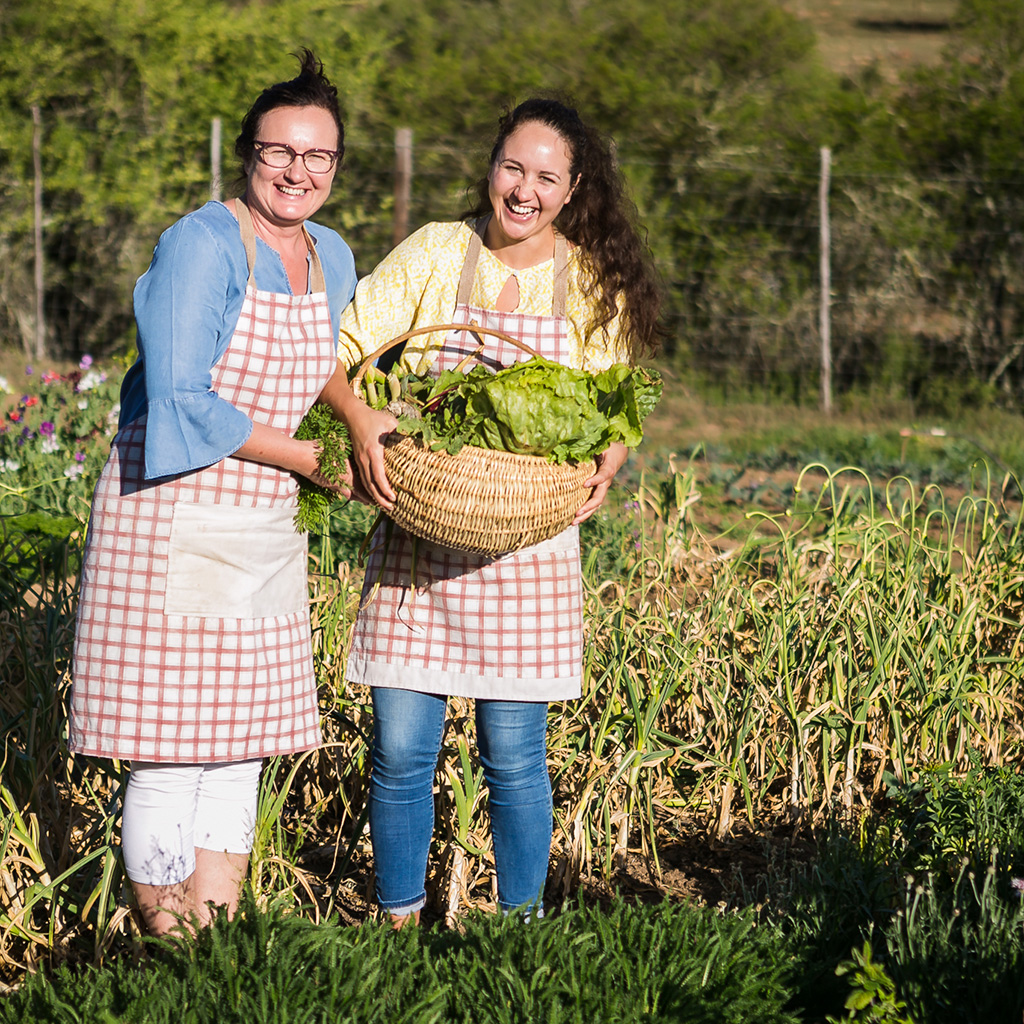
Mom (Lani) and me in our happy place – the farm garden with a full basket of freshly picked goodies.
Farm feasting with mum & me
You can visit my mother’s sprawling farm garden during one of our mom-and-daughter Lani & Louzel Farm to Table food experiences on Waterval Farm.
The events kick off with a garden harvest, after which the fresh produce is used to create a variety of traditional dishes. Making fresh jam and churning butter are some of the crowd favourites for our popular Breaking Bread class. In winter, the hands-on Lamb Three-Ways Workshop or Make your own Biltong and Droëwors classes are instant sell-outs, every time. 082 442 3543
Where: Waterval Farm, 50km outside Cradock towards Gqeberha (Port Elizabeth) on the N10, Eastern Cape
Pop the cherry
The Ionia cherry orchards are set among the rugged sandstone cliffs of the Eastern Free State Highlands where a unique combination of soil, climate and an elevated altitude – landmarked by a solitary rock-needle etched against the skyline known as The Pulpit – produces SA’s best cherries. In winter, the blossoms are an impressionist painting come to life. And in November, when cherries are ripe for the picking, the Ionia Farm Cherry Celebration takes place. Mountains of glistening red cherries, cherry liqueurs, jams, cakes, biscuits and everything else you can extract from a cherry are on the cards, along with tractor rides, live music and of course, picking your own by the bucketload. 072 585 3684
Where: Ionia Cherry Farm outside Ficksburg, Eastern Free State
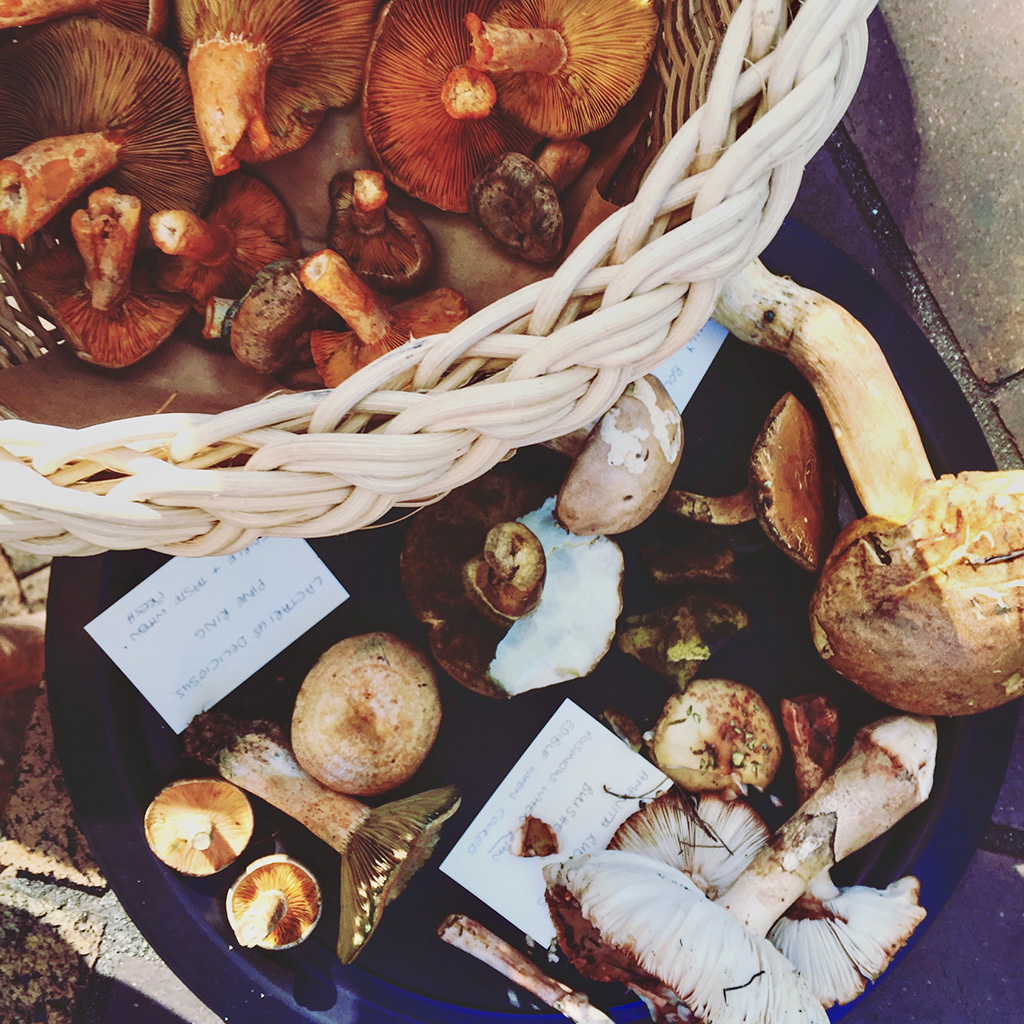
A successful hunt at Delheim with loads of pine rings gathered.
Vegan Hunting
A mushroom hunt at Delheim Wine Estate at the start of winter feels like a typical Karoo hunting experience. The early morning winter air is cold and misty, eager anticipation is in the air and dollops of sherry in your coffee are encouraged. The only difference is that this excursion is suitable for vegans.
Armed with mushroom-cleaning knives and Red Riding Hood baskets, Delheim’s foragers are schooled and then led by renowned Cape Town mushroom specialist Gary Goldman to help identify desirable finds and avoid the poisonous ones. The fungi are abundant and from a 100% sustainable source; it feeds from the dead matter in the top layer of soil in Delheim’s beautiful woods. With baskets full, you’ll return to the winery’s Garden Restaurant for a sumptuous mushroom-inspired feast, crowned with servings of the estate’s latest vintages.
The best part about knowing a bit about mushroom foraging is that it could really mean an endless supply of exotic mushrooms in season. 021 888 4600
Where: Delheim Wine Estate, Knorhoek Road (off the R44), Stellenbosch, Western Cape
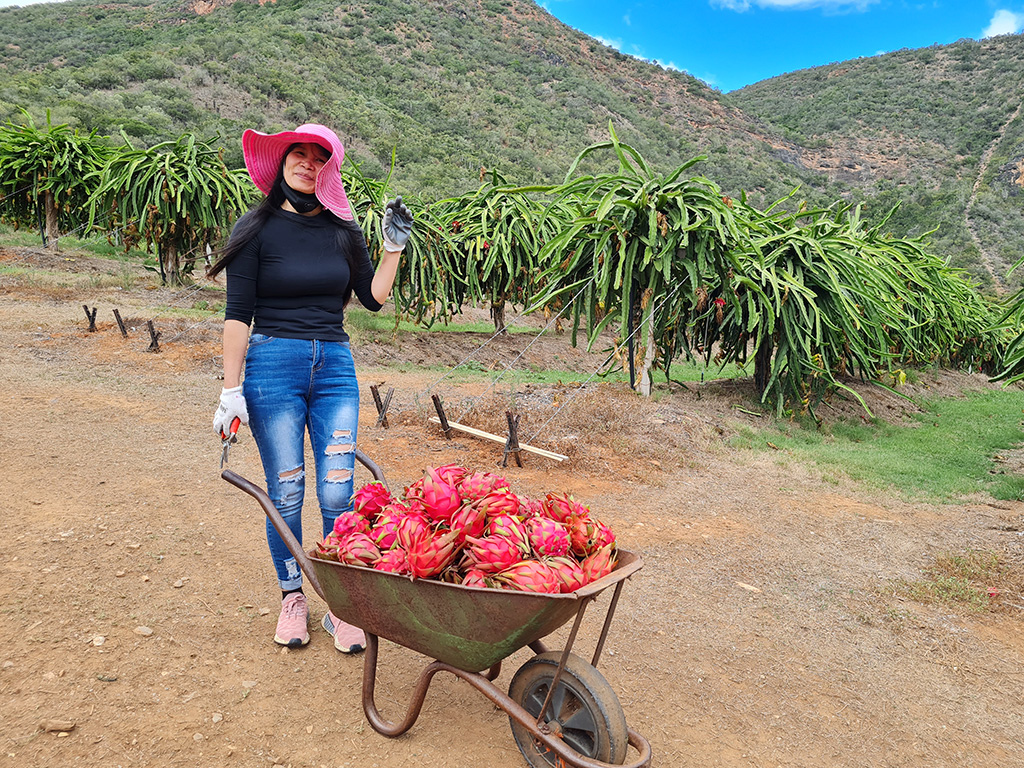
Public open days at the Dragon Fruit Farm in Patensie often result in ‘panic picking’.
Dragon slaying
Dragon fruit are some of the most interesting foods on Earth, growing on massive exotic cacti from long tentacles which drape down when bearing fruit. You can see the tentacle spectacle up close in Patensie at The Dragon Fruit Farm, where visitors get to pick their own fruits by the kilo. It’s the Eastern Cape’s only commercial dragon fruit farm and one of the first growers in South Africa, boasting the biggest collection of varieties in the country.
The farm opens on select days during the summer and autumn months’ harvest for visitors to stock up on the luscious red and white fruit marvels. Check out their opening days on social media before driving out there.
Where: The Dragon Fruit Farm at Bean se Bos, Patensie, Eastern Cape
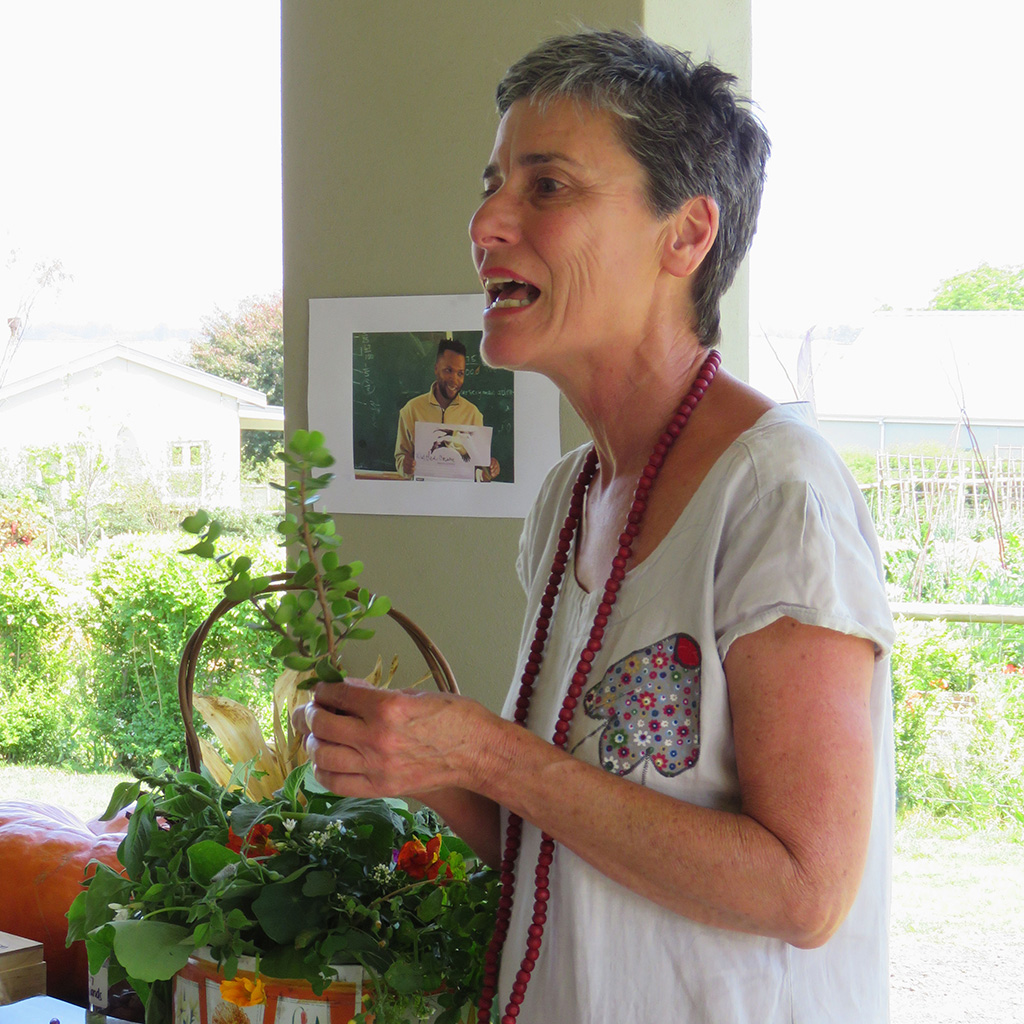
Nikki Brighton teaches participants about eating weeds and plants.
Weed-eater
A part of the global Slow Food movement, Nikki Brighton’s immersive experience in Howick focuses on finding and eating weeds found on the banks of the Umgeni River. Nikki is a master of weeds and helps eager grazers to identify various tasty edibles that occur in untamed places and gardens. Titbits served in the shade will surprise your palate. Ever tried nettle pesto or honeysuckle cordial?
Visitors can buy the celebrated community cookbook, Mnandi – A taste of Mpophomeni, which features commonly eaten wild greens on the spot. 083 473 3074

